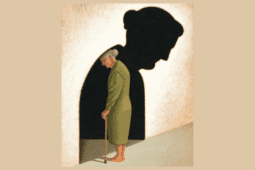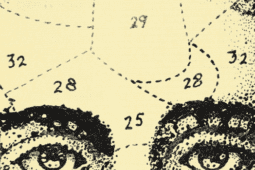The Therapy Beat
Editor's Note: July/August 2011
Extended Life, Elongated GriefAs the writers in this issue powerfully demonstrate, medical science has made extended dying and its impact on relatives and loved ones—what psychologist... Read more
Is Enough Ever Enough?
The Right-to-Die DebateWe’re living longer and longer, but this doesn’t necessarily mean that we’d choose to live through a painful terminal illnesses. Do we have the right to... Read more
Unhappy Endings
Death as Technology’s SlaveA perverse set of financial incentives within the medical system too often leads to the promotion of maximum treatment, no matter what. When this happens... Read more
The Stories We Live
In therapy—as in Fiction—There’s Always PossibilityBoth doing psychotherapy and the writing of fiction are about stories. The essence of the art of both pursuits is the openness to the possibility that, no... Read more
Editor's Note: May/June 2011
A Community of PracticeThe Networker has always been a community affair. From our first issue, every glimmer of an idea for an article or theme of this magazine has been a group... Read more
The Road To Mastery
What’s Missing from this Picture?Therapists usually enter the field because they’re drawn to it and have innate capacities to do the work. But whether they excel depends largely on their... Read more
Building A Culture Of Excellence
Anatomy of an Agency that WorksWe all have stories about the bureaucracies that stifle clinical creativity and seem to exist primarily to generate meaningless paperwork. Here’s a tale... Read more
What Therapists Want
It’s Certainly Not Money or Fame!A close-up look at a 20-year, multinational study that captures the heart of therapists’ aspirations—and perhaps the soul of our professional identity. Read more
Opening The Path
From What Is to What Can BeDown for the count, a therapist again discovers that even the most hopeless sessions can have a positive outcome if you stay with the process. Read more
From Isolation To Connection
How to Create a Community of PracticeA modest proposal about how to get out of your cubbyhole, enliven your conversations with others in the field, and experience a new kind of professional... Read more
Editor's Note: March/April 2011
Creating a 21st-Century Learning CommunityThis issue is noteworthy not only for its subject—tracking the influence of attachment research on psychotherapy theory and practice—but also because it... Read more
Bringing Up Baby
Are We Too Attached?While therapists may consider some intuitively appealing ideas about human development---like attachment theory---beyond dispute, the researcher's job is to... Read more
The Verdict Is In
The Case for Attachment TheoryFifty years of research has confirmed that the emotional quality of our earliest attachment relationships is central to our well-being as adults. Read more
The Nightgown
In Search of the AnswermanA determined patient searches for therapeutic insight from an unlikely source. Read more
Editor's Note: January/February 2011
Eating To Live, Not Living To EatThe old maxim "You should eat to live, not live to eat" may sound wise, but it's based on a profound misreading of the fundamental facts of human biology. Read more
Recipe For Life
Is Attuned Eating the Answer to Diet Failure?Despite the common cultural notion that anyone can successfully lose weight---constantly reinforced by the $60 billion-a-year diet industry---at least 95... Read more
Chew Wisely
The Joy of Playing With Your FoodRemember as a kid being scrupulously taught that eating was a serious business that brooked no nonsense? A lifetime later, this author discovered that---as... Read more
I Think, Therefore I Eat
Skills for Successful DietingFrom the viewpoint of Cognitive-Behavioral Therapy, the reason that dieters so frequently fail to stick to their healthy eating plans is simple: knowing what... Read more
It's Not About The Food
The Truth About Eating DisordersThe key to working effectively with eating disorders is understanding that starving, bingeing, and purging aren't simply bad habits. For treatment to work, it... Read more
Cyberspaced
Sherry Turkle Sees e-Life at the CrossroadsMIT professor Sherry Turkle has spent the last 30 years studying what our machines have come to mean to us, and how they're altering—sometimes... Read more
Shame-O-Phobia
Why Men Fear TherapyShame is the least understood dimension of men's inner experience—by both men themselves and the people who live with them. This lack of understanding may be... Read more
This issue examines whether our increasing knowledge of all those multisyllabic brain processes has really made us more effective practitioners. Read more
The Rise and Fall of PaxMedica
Welcome to the new era of brain-based therapyIn the 1970s, the rise of Prozac, the DSM-III, and "evidence-based" therapies brought the appearance of coherence and order to mental health professions under... Read more
Big Squeeze
No research? No reimbursementA tipping point has been reached in the impact that psychotherapy research results, no matter of interest only among a small circle of academic, are going to... Read more
Brain to Brain: January/February 2010
The talking cure goes beyond wordsAs we learn more about the brain, it becomes apparent that therapists need to pay at least as much attention to the body and nervous system (both their own and... Read more
The Brain's Rules for Change
Translating cutting-edge neuroscience into practiceFor the firs time, we're beginning to understand how to directly delete emotional meanings attributed to disturbing past events. Read more
Complexity Choir
The eight domains of self-integrationAs unlikely as it may sound, the mathematics of complexity theory could offer us the key to the elusive secrets of mental health and personal well-being. Read more
Ecological Intelligence
A new awareness for our timeOur collective survival depends on a shift in our most basic assumptions and perceptions, one that'll drive changes in commerce and industry, as well as in our... Read more
Facebook and Your Practice
Developing your social-networking savvyMore than a time-consuming diversion, Facebook can play a central role in marketing your practice. Read more
When TV finally came, in the early '50s, the world it brought into our living rooms was black and white, and dumbed way down. Newsmen now had faces, and, as... Read more


























